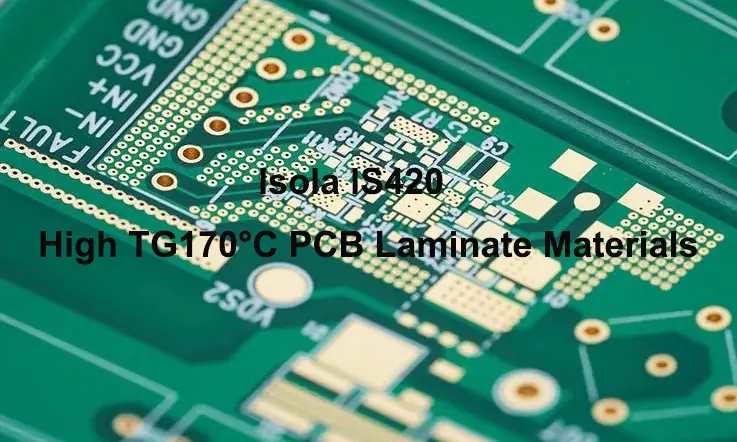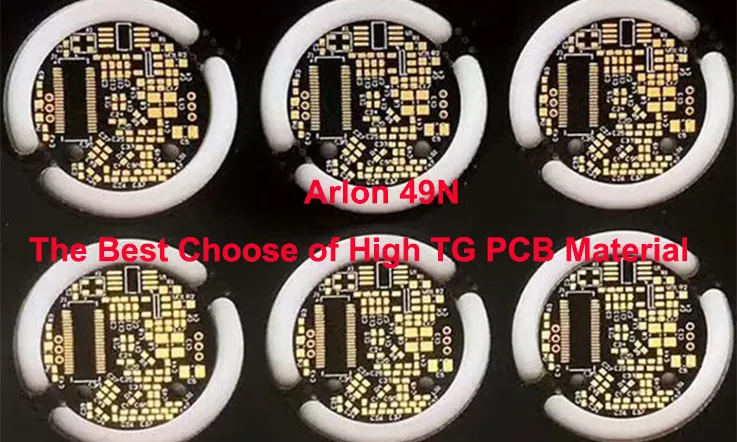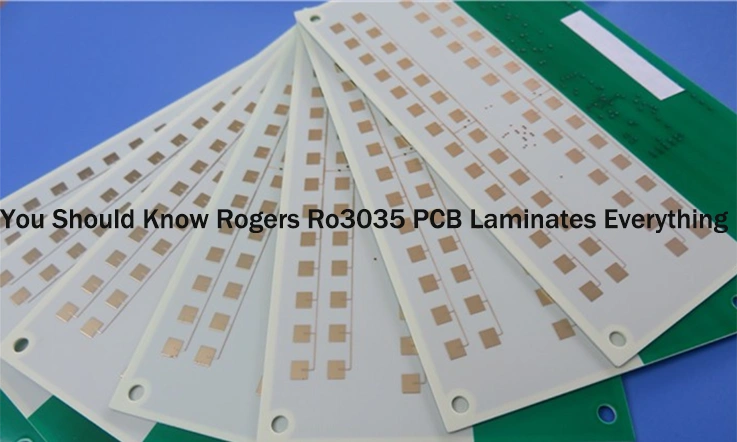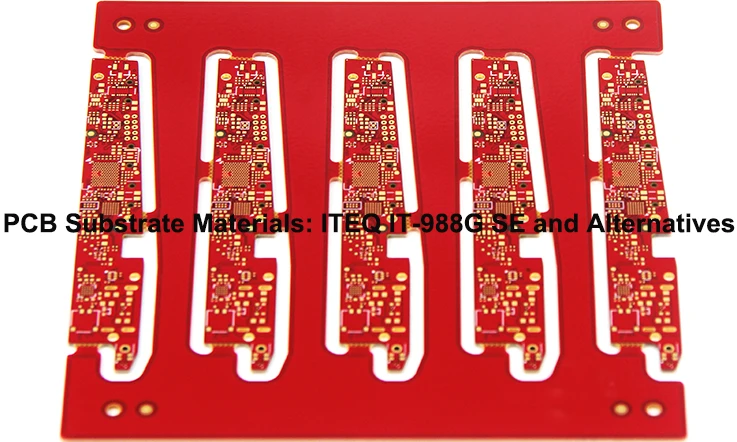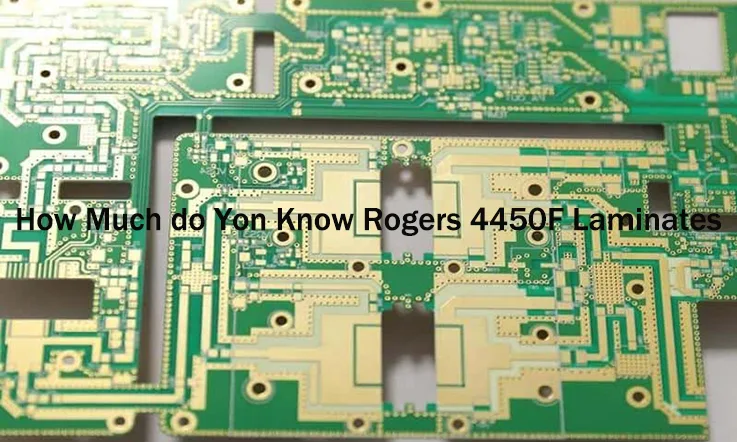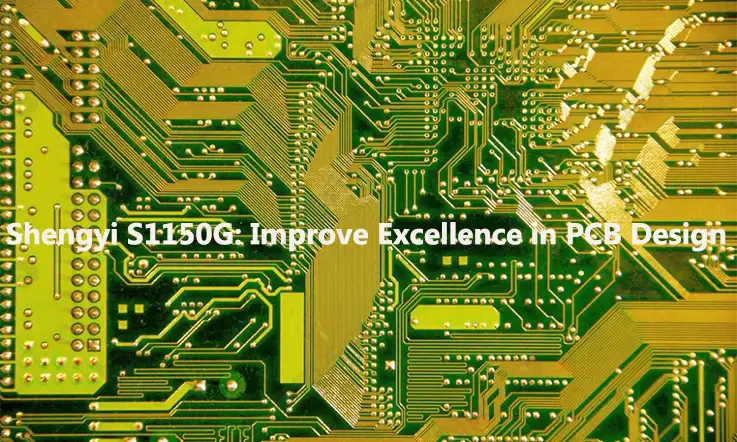
Shengyi S1150G is characterized by a carefully tuned combination of factors, including a reliable dielectric constant, low dielectric loss, and remarkable thermal stability. Its elevated Glass Transition Temperature (Tg) ensures resilience under varying temperature conditions, while the matched Coefficient of Thermal Expansion (CTE) mitigates mechanical stress. This material’s copper foil adhesion, low moisture absorption, and compliance with industry standards further contribute to its allure.
As we delve into the nuanced intricacies of Shengyi S1150G, we uncover a substrate that not only meets but exceeds the stringent requirements of modern PCB applications. This article explores the key considerations when selecting Shengyi S1150G for PCB manufacturing, shedding light on the attributes that make it a preferred choice for cutting-edge electronic designs.
What is Shengyi S1150G?
The S1150G, manufactured by Shengyi Technology Co, Ltd, is a premium PCB laminate designed with a Td (decomposition temperature) range of 325 to 360 degrees Celsius and a Tg (glass transition temperature) of 140 to 150 degrees Celsius. This high-quality laminate is specifically engineered for applications operating within a frequency range of 0 to 0.1 GHz.
Features of Shengyi S 1150G PCB Materials
The Shengyi S 1150G PCB materials offer a range of notable features, providing a professional-grade solution for various electronic applications. These features include:
1. Anti-Conductive Anodic Filament (CAF) Capability: The S 1150G materials exhibit exceptional resistance against CAF, preventing the formation of conductive paths that can compromise the performance and reliability of the PCBs.
2. Lead-Free Compatibility: Compliant with industry standards and regulations, these materials are designed to be compatible with lead-free assembly processes, ensuring environmental sustainability and meeting the demands of modern manufacturing practices.
3. Excellent Mechanical Processability: The S 1150G materials demonstrate outstanding mechanical processability, enabling efficient and precise fabrication of PCBs. This feature facilitates ease of handling during manufacturing, reducing the risk of damage or defects.
4. Halogen, Antimony, and Red Phosphorous-Free: In line with eco-friendly initiatives, the S 1150G materials are devoid of halogen compounds, antimony, and red phosphorous. This composition aligns with environmental regulations and promotes the use of sustainable materials in the electronics industry.
By incorporating these features, the Shengyi S 1150G PCB materials deliver a professional-grade solution that combines high-performance characteristics, compliance with industry standards, and an environmentally conscious approach. These materials are well-suited for a wide range of electronic applications, ensuring reliable and sustainable PCB manufacturing.
Properties of Shengyi S1150G
Shengyi S1150G is a type of PCB (Printed Circuit Board) material that is known for its high-performance properties. While I don’t have access to specific information about Shengyi S1150G beyond my September 2021 knowledge cutoff, I can provide you with general properties that are typically desirable in PCB materials. These properties may be applicable to Shengyi S1150G as well:
1.Thermal Stability:
PCB materials, including Shengyi S1150G, should have good thermal stability to withstand high operating temperatures without significant degradation. This property ensures reliable performance and longevity of the electronic components.
2.High Glass Transition Temperature (Tg):
Tg refers to the temperature at which the PCB material transitions from a rigid state to a more flexible state. A high Tg is desirable as it indicates improved heat resistance and dimensional stability, preventing warping or delamination of the PCB under elevated temperatures.
3.Low Coefficient of Thermal Expansion (CTE):
PCB materials with a low CTE exhibit minimal dimensional changes with temperature fluctuations. This property is crucial to maintain the integrity of the circuit and prevent issues like solder joint failures or stress-induced cracks.
4.Electrical Performance:
PCB materials, including Shengyi S1150G, should exhibit excellent electrical properties such as low dielectric loss, high insulation resistance, and low signal distortion. These properties contribute to efficient signal transmission, reduced power loss, and overall improved electrical performance of the PCB.
5.Mechanical Strength:
Good mechanical strength is essential to withstand physical stress during manufacturing, assembly, and operation of the PCB. The material should have sufficient tensile strength, flexural strength, and resistance to impact or vibration to ensure reliability and durability.
6.Chemical Resistance:
PCB materials should resist the effects of various chemicals, including solvents, cleaning agents, and fluxes used during assembly processes. Chemical resistance helps maintain the structural integrity and electrical properties of the PCB over its lifespan.
7.Flame Retardancy:
Fire safety is critical in electronic applications. PCB materials should have excellent flame retardant properties, meaning they should resist combustion and inhibit the spread of flames in case of fire.
It’s important to note that the specific properties of Shengyi S1150G can vary, and it’s best to refer to the manufacturer’s technical datasheets or product specifications for detailed and up-to-date information on its properties and performance characteristics.
Applications of Shengyi S1150G
The Shengyi S1150G PCB materials find extensive applications in various electronic devices and industries. Here are some notable examples:
1. Tablet, Notebook (NB), LED: The S1150G materials are well-suited for the manufacturing of PCBs used in tablets, notebooks, and LED displays. These materials provide excellent performance and reliability, ensuring the efficient operation of these devices.
2. Smartphone: With the demand for advanced smartphones on the rise, the S1150G materials offer exceptional characteristics that make them ideal for PCBs used in smartphones. Their anti-CAF capability, lead-free compatibility, and mechanical processability contribute to the reliable functioning of smartphone circuits.
3. Game Machine: The S1150G materials are suitable for the production of PCBs in game machines, including gaming consoles and arcade machines. These materials withstand the rigorous demands of gaming applications, ensuring stable performance and durability.
4. Automotive Electronics: Automotive electronics require robust and reliable PCB materials, and the S1150G meets these requirements. These materials can be used in the manufacturing of PCBs for various automotive applications, such as engine control units (ECUs), infotainment systems, and advanced driver-assistance systems (ADAS).
5. Communication Equipment: The S1150G materials are well-suited for communication equipment, including routers, switches, and network devices. Their high-performance characteristics and compliance with industry standards make them suitable for the demanding requirements of communication systems.
By catering to a diverse range of applications, the Shengyi S1150G PCB materials demonstrate their versatility and reliability, ensuring optimal performance in various electronic devices and industries.
What Factor Consideration When Choose Shengyi S1150G in PCB Manufacturing?
When choosing a specific material like Shengyi S1150G for PCB (Printed Circuit Board) manufacturing, several factors need to be considered to ensure that the material meets the requirements of your specific application. Here are some key factors to consider:
1.Dielectric Constant (Dk):
The dielectric constant of the material affects the speed at which signals can travel through the PCB. It’s crucial for high-frequency applications to have a consistent and predictable dielectric constant.
2.Dielectric Loss (Df):
Dielectric loss represents the amount of energy lost as heat in the PCB material. Low dielectric loss is essential for high-frequency applications to minimize signal distortion.
3.Thermal Stability:
The PCB material should have good thermal stability to withstand the heat generated during soldering and other manufacturing processes. This helps prevent warping and ensures the reliability of the PCB.
4.Tg (Glass Transition Temperature):
Tg is the temperature at which the PCB material transitions from a rigid to a flexible state. Choosing a material with a higher Tg is important for applications where the PCB will be subjected to elevated temperatures.
5.Coefficient of Thermal Expansion (CTE):
A matched CTE between the PCB material and the components soldered onto it helps prevent mechanical stress and potential damage during temperature cycling.
6.Copper Foil Adhesion:
Good adhesion between the substrate and copper foil is crucial for the reliability of the PCB. It ensures that the copper layers remain bonded under different thermal and mechanical stresses.
7.Moisture Absorption:
Low moisture absorption is essential to maintain the electrical and mechanical properties of the PCB over time, especially in humid environments.
8.Flammability and Compliance:
Ensure that the material complies with industry standards for flammability and environmental regulations, such as RoHS (Restriction of Hazardous Substances) compliance.
9.Cost:
Consider the cost of the material in relation to your budget and the overall manufacturing cost. While it’s essential to choose a material that meets technical requirements, cost considerations are also important.
10.Application-Specific Requirements:
Consider any specific requirements of your application, such as impedance control, signal integrity, and other performance factors that may be critical for your PCB design.
It’s important to note that the specific requirements may vary depending on the nature of the electronic device, the intended application, and the performance expectations.
Summary
Whether it’s the consistent dielectric performance crucial for high-frequency applications or the impeccable thermal stability demanded by modern electronics, Shengyi S1150G surpasses expectations. Its adherence to industry standards, coupled with the assurance of low moisture absorption, positions it as a frontrunner in the pursuit of optimal PCB solutions.
As engineers and manufacturers navigate the intricate landscape of PCB material selection, Shengyi S1150G stands as a testament to precision and reliability. Embracing this material is not merely a choice; it is a strategic decision to enhance the performance, longevity, and overall quality of electronic devices. In the symphony of electronic design, Shengyi S1150G plays a crucial note, resonating with the promise of a future where innovation knows no bounds.

